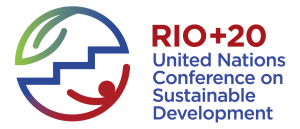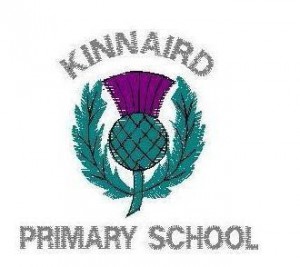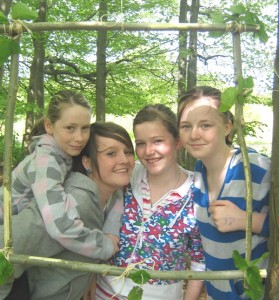

Global Citizenship blog
11am - 12pm, Tuesday 19 June 2012
 What are your green dreams for the future?
What are your green dreams for the future?
What message will you send to world leaders?
How can Scotland become more sustainable?
What can we expect from this globally important event?
Over 150 heads of state and world leaders will gather in Rio de Janeiro from 20-22nd June 2012 for crucial talks at the United Nations Conference on Sustainable Development. Stewart Stevenson MSP, Minister for the Environment and Climate Change, will be one of those travelling to Rio as part of the official UK delegation.
Education Scotland, through Glow, is giving you the chance to link with the Minister live from Rio to learn more about the event and the hopes and expectations of the UK delegation.
The conference, referred to as Rio+20, will mark 20 years since the historic Earth Summit in the same city in 1992 which put issues such as climate change and the protection of biodiversity on the map and gave birth to Agenda 21 – an action plan for a sustainable future which was adopted by national governments, cities and local authorities across the world. Rio+20 will focus on seven priority areas including: decent jobs, energy, sustainable cities, food security and sustainable agriculture, water, oceans and disaster readiness.
Rio+20 provides an opportunity to move away from business-as-usual and to take bold steps to end poverty and address environmental destruction.
This will be an interactive Glow meet so get your questions, messages, ideas and green dreams ready for Rio!
This Glow meet will be suitable for learners in primary and secondary schools.
Visit http://bit.ly/glowrio20 to register and join the Glow meet on the day. Free Rio+20 resources are available at: http://bit.ly/JxZr5G
More Each year Refugee Week grows and increases in profile, making its mark on the UK’s cultural calendar. This year’s theme Spirit captures:
Each year Refugee Week grows and increases in profile, making its mark on the UK’s cultural calendar. This year’s theme Spirit captures:
Refugee Week is all about having fun, broadening horizons and breaking down barriers. Every June the week long UK-wide festival of arts, cultural and educational events celebrates contributions refugees have made to the UK, and promotes understanding about why people seek sanctuary.
Click here to see the exciting programme of activities and events for 2012>>
MoreLatest: Join our Glow meet live from Rio+20 from 11am to 12pm on Tuesday 19th June.  Put your questions to Stewart Stevenson MSP, Minister for the Environment and Climate Change, who will be attending as part of the official UK delegation. Share your green dreams and vision for a better future for all the world’s people.
Put your questions to Stewart Stevenson MSP, Minister for the Environment and Climate Change, who will be attending as part of the official UK delegation. Share your green dreams and vision for a better future for all the world’s people.
Between 20-22 June 2012 world leaders will gather in Rio De Janeiro for crucial talks at the United Nations Conference on Sustainable Development. The conference, referred to as Rio+20, will mark 20 years since the historic Earth Summit in the same city in 1992 which put issues such as climate change and the protection of biodiversity on the map and gave birth to Agenda 21 – an action plan for a sustainable future which was adopted by national governments, cities and local authorities across the world. The establishment of the international Eco-Schools movement was another practical outcome of this process.
The 1992 Earth Summit achieved much but clearly there are still many challenges to be addressed if we are to build a safer, more equitable, cleaner, greener and more prosperous world for all.
The hopes and expectations for Rio+20 are high and the preparations have highlighted seven priority areas including: decent jobs, energy, sustainable cities, food security and sustainable agriculture, water, oceans and disaster readiness. Rio+20 is a chance to move away from business-as-usual and to take bold steps to end poverty and address environmental destruction.
Sustainability in Scotland
The document, A Flourishing Scotland, produced for Rio+20 outlines the many achievements we should celebrate with regards to Scotland’s success in promoting sustainable development education. IN the context of the Rio Summit it may be of interest to note that Chapter 36 of the Agenda 21 document, which focussed on education, was written by a Scot – Professor John Smyth.
However, other key achievements nationally include: the embedding of sustainable development education, global citizenship and outdoor learning within Curriculum for Excellence; we also have one of the most successful Eco-Schools programme in the world with over 98% of local authority school registered; and Scotland has shown leadership on a world stage by introducing ambitious targets on climate change and in planning for our transition to a low-carbon economy. By 2020 it is estimated that 130,000 people will be employed in low carbon and green industries in Scotland and that renewable energy will provide 100% of our energy needs. Scotland is also the only county in the world to have debated the issue of climate justice in its parliament.
Whilst much has been achieved, there is still work to be done. Nevertheless, there is a real opportunity for Scotland to show leadership on a world stage with regards to its commitment to sustainable development and to set an example for other nations to follow.
What you can do
Our ambition is that every learner in Scotland recognises themselves as a global citizen; has a strong commitment to living sustainably and has an enthusiasm for the outdoors and nature.
You can help by ensuring that global citizenship, sustainable development education and outdoor learning are on your school improvement plan and embedded in your curriculum. Make these areas the responsibility of everyone in your school, not just the eco-warrior or group, so your school can adopt a successful whole school approach and make an impact on every learner.
Professional learning – read Learning for Change: Scotland’s Action Plan for the United Nations Decade of Education for Sustainable Development and make use of our resources on sustainable development education, global citizenship and outdoor learning.
Join our online community to share practice and ideas with other practitioners around Scotland and engage in professional dialogue.
Activity ideas
Raise the profile of the conference in your own school or community – organise your own version of the Rio+20 conference.
Invite learners to develop their green dreams – what is their vision of a more sustainable future? What would they like to see happen in the next 20 years? What would their message to world leaders be?
Web links
Official website of the Rio+20 Summit
Twitter – follow the conversation at #Rioplus20
My green dream – add your voice and dream to thousands of others
Education Scotland Online
Sustainable development education pages and videos
Global citizenship resources
Outdoor learning resources
Weather and Climate Change
Exploring Climate Change
Schools Global Footprint
Resources
Keep Scotland Beautiful and the Scottish Sustainable Development Forum have created a Rio+20 resource pack for schools and youth groups. This resource pack can be downloaded from the Eco-Schools Scotland website. Hard copies, plus the accompanying DVD, can be ordered via email: [email protected]
WWF has produced a free Rio+20 teaching resource and associated competition for young people aged 11-14 years. Download for free at: www.wwf.org.uk/futures
Download the special edition Living Planet Report - On the Road to Rio produced by WWF.
Stop Climate Chaos has produced Rio+20 resources for students and teachers. Download from: http://www.stopclimatechaos.org/rc-youth
MoreSchool open day - Wed 23rd May 2012
 Since opening in August 2007, Kinnaird Primary School has demonstrated a strong commitment to Global Citizenship. It was the first school in Falkirk to achieve Fairtrade status, has achieved two ECO Schools green flags, Falkirk Council’s International Education Awards (Stage 2) and the British Council Intermediate Level Developing Internationalism Award, in addition to Falkirk Council’s Platinum Level Enterprise Education Award.
Since opening in August 2007, Kinnaird Primary School has demonstrated a strong commitment to Global Citizenship. It was the first school in Falkirk to achieve Fairtrade status, has achieved two ECO Schools green flags, Falkirk Council’s International Education Awards (Stage 2) and the British Council Intermediate Level Developing Internationalism Award, in addition to Falkirk Council’s Platinum Level Enterprise Education Award.
Download programme for open day>>
Programme
9.30 Registration and Coffee
9.45 Welcome and introduction by Pamela Adamson, Headteacher
10.00 Tour of school
Participants given tour of school by pupils/staff in small groups, including visits to classes
11.00 Coffee break
11.30 Presentation about the school’s journey (Pamela Adamson and pupils)
12.00 Informal question and answer session
12.30 Lunch
13.15 Presentation by Megan Farr, Policy Officer, outlining the work Falkirk Council Education Services do to support and promote Global Citizenship in schools
13.30 Reflection and professional dialogue
Participants exchange ideas and reflect on personal experience in the light of the visit
14.45 Close
If you wish to register for this Open Day, please contact Megan Farr on 01324 506671 or [email protected]
More
 9:30am – 3.00pm, Thurs 10th May 2012
9:30am – 3.00pm, Thurs 10th May 2012
Theme: Sustainable Development Education and Education for Citizenship
St Paul’s High School is an inspiring example of a school that has adopted a whole school approach to global citizenship. The school’s achievements in this regard have earned it national recognition as a finalist in the 2011 Scottish Education Awards (Sustainable School Category) and as a winner of the 2009 Scottish Education Awards (Active Citizenship Category).
The school’s approach and vision for global citizenship has made an identifiable impact on learners, helping them grow in confidence and providing them with real-life opportunities to develop their skills and transform their local community. The school has supported a wide range of activities to achieve this, most notably:
This CPD event offers practitioners and school leaders from across Scotland the chance to visit St Paul’s High School to meet with the Head Teacher, staff and learners and also tour the classrooms, buildings and grounds.
Those participating in the open day will also have time to reflect and share their own experiences.
Download Programme for St Paul’s Open Day>>
How to book
To book, please email: [email protected] or Tel. 0141 282 5172.
Places are limited so please book early to avoid disappointment. This is a free event!
MoreA Human Rights Education conference aimed to raise the profile and encourage collaboration on human rights education and active citizenship in Scotland has been organised by BEMIS (www.bemis.org.uk) in association with a number of partner in Glasgow (City Chambers) on Thursday, 27th October 2011.
The conference is aimed at practitioners and education managers as well as local authority coordinators involved in the planning and delivery of human rights education. It will provide participants with the opportunity to gain an overview of current practice, exchange ideas and reflect as well as collaborate with practitioners and stakeholders on the development of this agenda. The following flyer and programme will provide you with more information on the event:
HRE Conference Flyer and HRE Conference Programme
For more information on this conference please contact:
BEMIS
Mrs Tanveer Parnez
Director of National Development
tel: 0141 548 8047
MoreWe are delighted to offer you a free Global Citizenship calendar containing major events and dates to help you plan rich and stimulating learning experiences across the curriculum throughout the year.
Go to Global Citizenship calendar 2011/12 and download the pdf version or email [email protected] to request a printed (A2) version.
An exciting online version of this calendar connecting you to support materials for each entry will soon be available on the Education Scotland website (http://www.ltscotland.org.uk/ ). So, whether you are planning learning around religious festivals, Holocaust Memorial day or World Environment Day, the Global Citizenship calendar will point you in the right direction.
MoreA Human Rights Education conference aimed to raise the profile and encourage collaboration on human rights education and active citizenship in Scotland has been organised by BEMIS (www.bemis.org.uk) in association with a number of partner in Glasgow (City Chambers) on Thursday, 27th October 2011.
The conference is aimed at practitioners and education managers as well as local authority coordinators involved in the planning and delivery of human rights education. It will provide participants with the opportunity to gain an overview of current practice, exchange ideas and reflect as well as collaborate with practitioners and stakeholders on the development of this agenda. The following flyer and programme will provide you with more information on the event:
HRE Conference Flyer and programme BEMIS conference
For more information on this conference please contact:
BEMIS
Mrs Tanveer Parnez
Director of National Development
tel: 0141 548 8047
MoreIn June 2009, Mearns Primary School achieved Level 1 of the Rights Respecting School Award. We surveyed staff, parents and pupils to evaluate the impact of developing an understanding of rights and responsibilities within the school and wider community. Embarking on Rights Respecting Schools Award had a hugely positive effect on general behaviour and the ethos within the school. With this in mind we decided to work towards Level 2.
As every class had participated in lessons to develop an understanding of the UNCRC we looked to ways to further embed this within the school. This was done through looking for ways to embed rights and responsibilities throughout the curriculum. When planning, teachers look for specific links to articles in the UNCRC through topics such as WW2, Victorians, Refugees, Election Fever and Local Area. In addition to this, our P7 reading buddies now have a template they use to discuss various rights and responsibilities when reading with younger children.
Every class has a class charter, displays linked to Articles and a copy of the UNCRC display so to up level this the steering group interviewed members of the school community from pupils, catering, office and janitorial staff to teachers and parents. They highlighted the right that they felt applied to them and the responsibility they have in ensuring others enjoy it. These were displayed throughout the school.
We introduced a ‘Right of the Week’ system where each week we focus on a different right and responsibility. Pupils who display responsible and respectful attitude towards that right receive a certificate. This is organised independently by the steering group.
The steering group wanted to raise awareness in the local community so they organised a poster competition throughout the school. Details were put in our RRS Newsletter and the posters were completed as a homework task. This increased awareness and understanding for parents. The winning posters were published and then the steering group visited local community establishments explaining what the UNCRC is and what we had been doing to become a RRS. They then asked for the posters to be displayed and for that place to be a RRS doctors, dentist, library etc.
Our RRS also visited local guides, brownies and BBs to do presentations about RRS there, this was well received and we aim to continue to do this.
Written by Siobhan McColgan, DHT, Mearns Primary. Siobhan can be contacted at [email protected].
MoreAt Mearns Primary the election fever topic looks at election processes, the Scottish parliament and is run as an enterprise topic. Pupils work in teams to run an election campaign and undertook the following:
• Through discussion and activities the children realised the importance of a leader to organisation and decision making capabilities
• Pupils discussed what qualities a leader (a candidate) should have. For this the children used a resource called ‘Ideas Trail’, to sort their ideas and arrive at important qualities. This allowed them to structure their discussion and rate their final choices.
• Pupils had opportunity to think as to whether they had these qualities or indeed whether they could develop these qualities and propose themselves as a candidate.
• Candidates then had to write a manifesto, whilst those not applying had to write a similar script on what they would like to be changed in the school/classroom.
• A mini secret ballot was then initiated and 4 candidates chosen to run for election. The other children in the class were assigned to work for a candidate and they were to choose a logo a party name and a slogan.
• On the day of voting children were given specific roles: Presiding Officer, Polling Agent, Counting Agent and Tellers.
• The winning candidate then made a speech and gave thanks to their supporters and support team. A considerable effort was made to ensure ballot was as realistic as possible by making a ballot box, voting booth, using name cards, high visibility vests etc.
• Pupils are also given an additional activity where they are given the role of Chancellor of the Exchequer. We watch a video of the Budget and the children are given a fictional amount of money and they have to decide how they are going to spend it e.g. Education, Armed Services, Health etc. The class then have a debate about how the money is spent and get to see that people from different perspectives have very different opinions.
Find us on